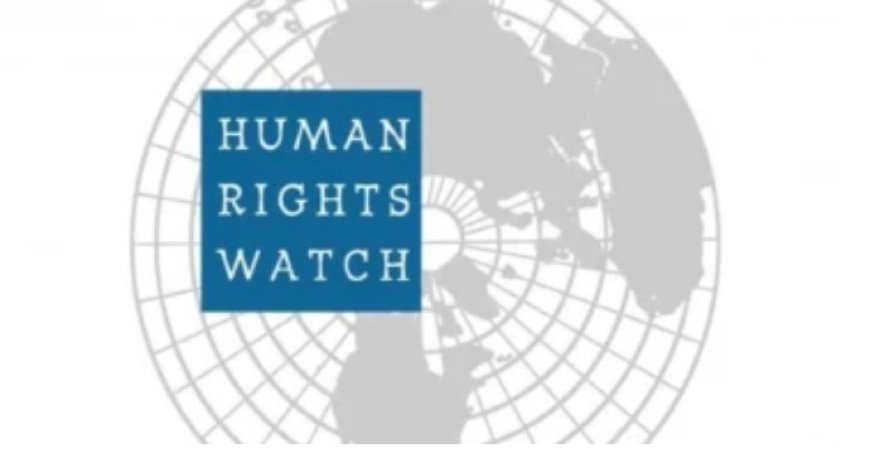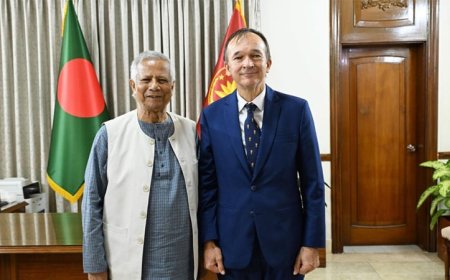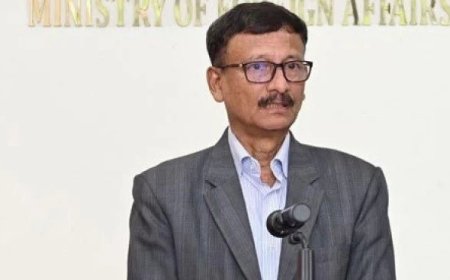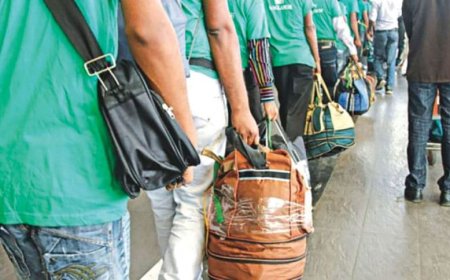The Arakan Army continues to persecute Rohingya Muslims
The Arakan Army continues to persecute Rohingya Muslims.

Arakan Army Accused of Systematic Abuses Against Rohingya Muslims: HRW
The Arakan Army, an ethnic armed group active in Myanmar’s western Rakhine State, has imposed harsh restrictions and committed serious abuses against the Rohingya Muslim population, Human Rights Watch said in a statement on Tuesday.
Despite gaining control over large parts of Rakhine, the group has reportedly carried out widespread violations, including restrictions on movement, looting, arbitrary arrests, mistreatment, and the use of forced labor and recruitment—all targeting the Rohingya community. These abuses mirror long-standing atrocities committed by Myanmar’s military, which has subjected the Rohingya to crimes including apartheid.
“The Arakan Army is replicating the same oppressive tactics once used by the Myanmar military,” said Elaine Pearson, Asia director at Human Rights Watch. “They must end these discriminatory practices and respect international legal standards.”
Following renewed conflict in November 2023, the Arakan Army had promised inclusive governance in areas taken from the junta. However, the Rohingya say conditions under their control remain repressive. According to the report, the group and its political wing, the United League of Arakan, enforce discriminatory policies that leave the community marginalized.
Between April and July 2025, Human Rights Watch interviewed a dozen Rohingya refugees who had fled from Buthidaung township to Bangladesh.
“Life under their rule was suffocating,” said a 62-year-old man who arrived in June. “We couldn’t work, farm, fish, or even move without their approval. People were starving, relying on each other just to survive.”
Caught between the Arakan Army and the Myanmar military, the Rohingya continue to suffer atrocities such as extrajudicial killings, mass arson, and forced recruitment. Since late 2023, over 400,000 people have been internally displaced across Rakhine and Chin States, and around 200,000 have fled to Bangladesh.
One refugee recounted being displaced five times in a year. “Permits to travel between villages were expensive and rarely granted,” he said. “Without them, you risked arrest—and those detained often disappeared.”
Residents said that one-day travel permits cost up to 5,000 kyat (US$2.40) and required approval from both Muslim village leaders and Arakan Army officials. A strict curfew was enforced, with arrests made for violations—sometimes resulting in detainees vanishing without a trace.
Restrictions on agriculture, combined with extortion and inflated market prices, have worsened an already dire food crisis, worsened further by the junta’s blockade on aid. Some Rohingya survived only through remittances from abroad; others labored for the Arakan Army without pay.
“They stopped paying us altogether,” said another elderly man, who arrived in Bangladesh in May. “We were left with nothing.”
Rohingya villagers described the confiscation of property by the Arakan Army, including land, homes, livestock, fishing catches, firewood—and even cemeteries. In one case, a graveyard in Kin Taung was reportedly demolished and villagers told to bury their dead in rice fields.
As tensions rise, Rohingya armed groups like the Arakan Rohingya Salvation Army (ARSA), which previously fought alongside the military, have resumed clashes with the Arakan Army. Reports also allege that the Arakan Army forcibly recruits Rohingya villagers into their ranks, heightening communal friction between the Buddhist Rakhine and Muslim Rohingya communities.
One man said he was arrested and tortured for over a month after the Arakan Army failed to locate his son. “They beat me daily,” he said. After refusing to hand over his son, their home was burned down, prompting the family to flee.
Another man, detained in December 2024, was accused of collaborating with the military. “They beat me with bamboo sticks so badly I still can’t walk properly,” he said.
International humanitarian law, including Common Article 3 of the Geneva Conventions, prohibits torture, pillage, child recruitment, and forced labor—all of which have been reported in Rakhine State.
Human Rights Watch also noted that both the Arakan Army and Rohingya armed groups benefit from smuggling operations that transport people to Bangladesh. Refugees said they paid between 800,000 and 1.25 million kyat (US$380–595) per person to escape.
Since May 2024, over 120,000 Rohingya have arrived in Bangladesh’s refugee camps, with many more remaining unregistered and without aid. While Bangladesh continues to advocate for repatriation, international observers stress that conditions in Myanmar remain unsafe for return.
“Governments and donors must step up efforts to ensure the safety and freedom of the Rohingya—both in Myanmar and in Bangladesh,” said Pearson. “They must also push the Arakan Army to uphold the rights of all communities in Rakhine State.”
What's Your Reaction?





















































































